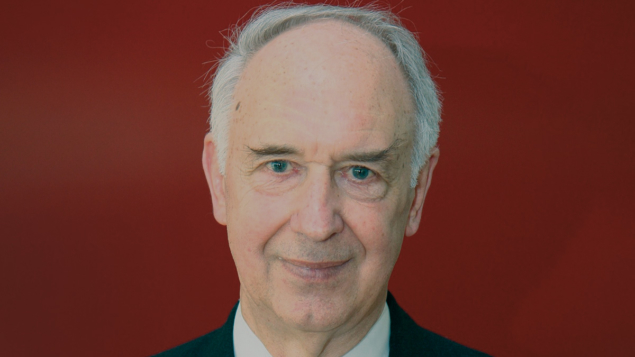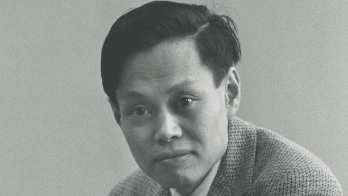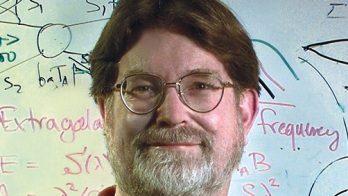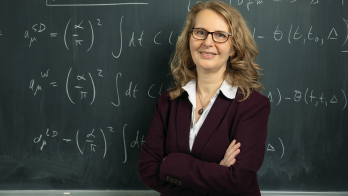
Experimentalist Volker Soergel passed away on 5 October at the age of 91. Born in Breslau in March 1931, Soergel was a brilliant experimental physicist and an outstanding leader, shaping particle physics for many years.
Receiving a doctorate from the University of Freiburg in 1956 under the tutelage of Wolfgang Gentner, Soergel remained at Freiburg until 1961, with a year at Caltech in 1957–1958. He then joined CERN as a research associate, working with Joachim Heintze on the beta decay of elementary particles, especially very rare decays of mesons and hyperons. Their results became milestones in the development of the Standard Model, resulting in the award of the German Physical Society’s highest honour in 1963.
In 1965 Soergel became a professor at the University of Heidelberg. He continued his research at CERN while taking on important roles at the university: as director of the Institute of Physics, as dean and as a member of the university’s administrative council. With vision and skill, he played a major role in shaping the university.
Important tasks outside Heidelberg followed. From 1976–1979 he chaired the DESY Scientific Council through a period that saw work begin on the electron–positron collider, PETRA. Under his leadership, the council played an important role in DESY’s transition from national to international laboratory. In 1979 and 1980 he served as research director at CERN, helping pave the way for the collider experiments of the 1980s.
From 1981–1993 Soergel headed DESY, overseeing construction of the electron–proton storage ring, HERA, together with Björn Wiik and Gustav-Adolph Voss. HERA and its experiments benefited from large international contributions, mainly in the form of components and manpower: an approach that became known as the HERA model. Soergel’s powers of persuasion, his reputation, and his negotiating skills led to support from institutes in Western Europe, Israel and Canada, as well as from Poland, Russia and China. From 1996–2000 he headed the Max Planck Institute for Physics in Munich. Under his guidance, photon science became an important pillar of DESY research, first as a by-product of accelerators used for particle physics, then, with the inauguration of HASYLAB in 1981 and the conversion of DORIS, as an established research field that continues strongly to this day.
Soergel’s time at DESY coincided with German reunification. He enabled the merger of the Institute for High Energy Physics in Zeuthen, near Berlin, with DESY and, together with Paul Söding, made Zeuthen a centre for astroparticle physics. Even before the Iron Curtain fell, Soergel personally ensured that Zeuthen scientists could work at DESY.
Volker Soergel received many honours. He was awarded the Federal Cross of Merit, 1st class, and honorary doctorates from the universities of Glasgow and Hamburg. He has left a lasting legacy. His love for physics was similar in intensity to his love for music. A gifted violin and viola player, he enjoyed making music with his wife and children, friends and colleagues. All who worked with him remain grateful for all they learned from him and will not forget his support and guidance.








